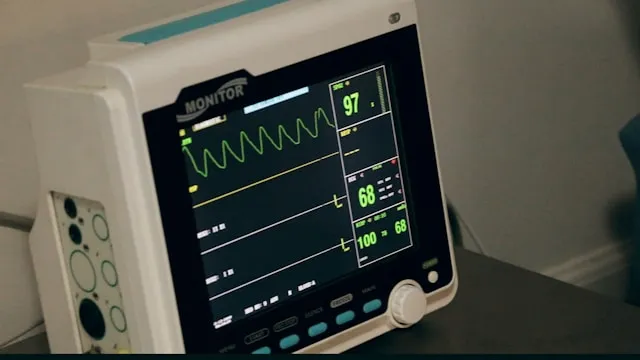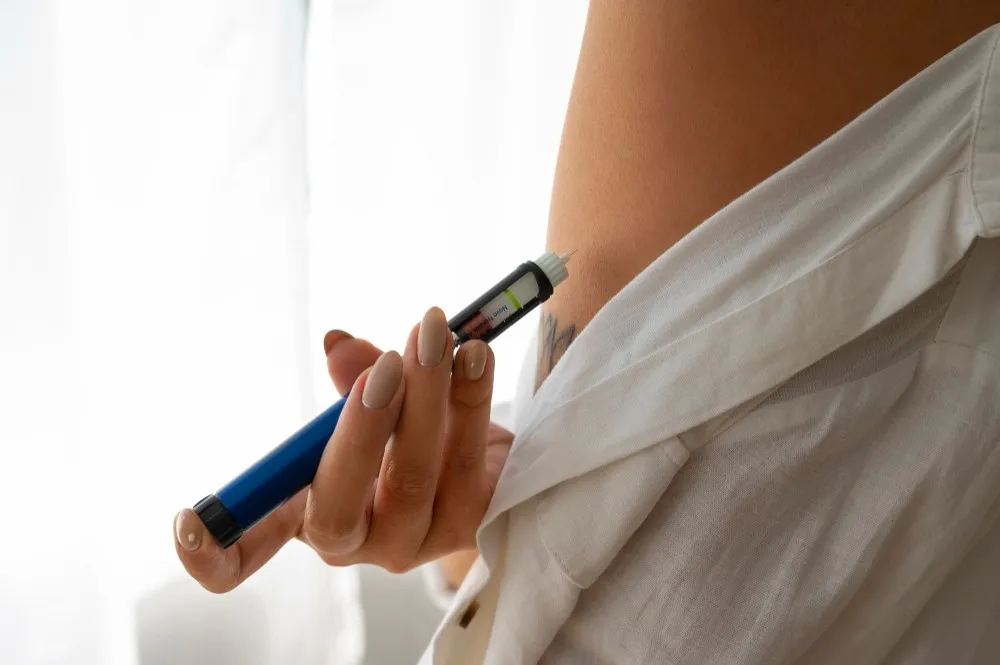CABG Recovery - Coronary Artery Bypass Grafting (CABG), commonly known as Heart Bypass Surgery, is a procedure to correct narrowing or blockage of the arteries that provide oxygen and blood to the muscles of the heart. CABG is performed on individuals who have blockages in more than two coronary arteries or are suffering from coronary artery disease with other pre-existing medical conditions like diabetes.
Typically, recovery after CABG performed using open heart technique may take 6 to 12 weeks. Nowadays, CABG is performed using a minimally invasive technique, and estimated time frame for recovery is less than 2 weeks. In most cases, recovery after CABG is such that, the patient is able to sit in a chair one day after the procedure, walk after 3-4 days, climb stairs after a week and get back to normal activities in 2 weeks. Having said that, one should understand that each body is different and the recovery after CABG for each patient is distinctive.
 During CABG, a healthy vein from the body is joined or grafted to the blocked coronary corridor. The grafted vein then bypasses the blocked segment of the coronary supply route. A cardiologist may recommend CABG if other treatments such as medicines, angioplasty or lifestyle changes don't work.
Book an online appointment with a Cardiologist in Chennai.
Even though the latter may not cure the problem, it definitely plays an extremely crucial part in the recovery after CABG procedure. This is because there is no guarantee that after a CABG procedure, the same problem will not reappear.
You may, therefore, need repeated surgeries if the grafted arteries become blocked, or if new blockages are developed in other arteries that weren't blocked before. Hence, for faster recovery after CABG and leading a healthy life post procedure, making lifestyle modifications such as dietary changes, quitting smoking, exercising regularly, reducing alcohol intake and managing stress.
Get Bypass Surgery Cost in India from trusted NABH & JCI accredited hospitals - FREE.
The recovery process is not only restricted to the hospital level. It also entails a recuperation process that has to be maintained at home in the form of CABG recovery exercises and lifestyle changes.
During CABG, a healthy vein from the body is joined or grafted to the blocked coronary corridor. The grafted vein then bypasses the blocked segment of the coronary supply route. A cardiologist may recommend CABG if other treatments such as medicines, angioplasty or lifestyle changes don't work.
Book an online appointment with a Cardiologist in Chennai.
Even though the latter may not cure the problem, it definitely plays an extremely crucial part in the recovery after CABG procedure. This is because there is no guarantee that after a CABG procedure, the same problem will not reappear.
You may, therefore, need repeated surgeries if the grafted arteries become blocked, or if new blockages are developed in other arteries that weren't blocked before. Hence, for faster recovery after CABG and leading a healthy life post procedure, making lifestyle modifications such as dietary changes, quitting smoking, exercising regularly, reducing alcohol intake and managing stress.
Get Bypass Surgery Cost in India from trusted NABH & JCI accredited hospitals - FREE.
The recovery process is not only restricted to the hospital level. It also entails a recuperation process that has to be maintained at home in the form of CABG recovery exercises and lifestyle changes.
 Exercise is an important component of recovery after heart bypass surgery. Mentioned below are CABG recovery exercises, activities, and steps recommended by experts to ensure speedy recovery along with safety to move towards an active lifestyle. Nonetheless, check the same with your doctor or cardiac rehabilitation specialist regarding the safety of the activities to do immediately after CABG surgery and in the long run.
Exercise is an important component of recovery after heart bypass surgery. Mentioned below are CABG recovery exercises, activities, and steps recommended by experts to ensure speedy recovery along with safety to move towards an active lifestyle. Nonetheless, check the same with your doctor or cardiac rehabilitation specialist regarding the safety of the activities to do immediately after CABG surgery and in the long run.
[embed]https://www.youtube.com/watch?v=rx5NE9F8HfM[/embed]
Dr. Bhaba Nanda Das is a well-known Cardiac Surgeon at Indraprastha Apollo Hospital, New Delhi since its inception in 1996 and currently associated as the Coordinator of Cardiac Surgery Department. Dr. Das is one of the pioneers in Beating Heart Surgery and usage of Multiple Arterial Graft in Coronary Artery Bypass Grafting (CABG). He was also involved in 1st heart transplant in India and planning to start with Heart Transplant Program in Indraprastha Apollo Hospital New Delhi.
Recovery after Coronary Artery Bypass Grafting (CABG) & Exercises
Mentioned below are the methods to be adopted for a speedy recovery after CABG: During CABG, a healthy vein from the body is joined or grafted to the blocked coronary corridor. The grafted vein then bypasses the blocked segment of the coronary supply route. A cardiologist may recommend CABG if other treatments such as medicines, angioplasty or lifestyle changes don't work.
Book an online appointment with a Cardiologist in Chennai.
Even though the latter may not cure the problem, it definitely plays an extremely crucial part in the recovery after CABG procedure. This is because there is no guarantee that after a CABG procedure, the same problem will not reappear.
You may, therefore, need repeated surgeries if the grafted arteries become blocked, or if new blockages are developed in other arteries that weren't blocked before. Hence, for faster recovery after CABG and leading a healthy life post procedure, making lifestyle modifications such as dietary changes, quitting smoking, exercising regularly, reducing alcohol intake and managing stress.
Get Bypass Surgery Cost in India from trusted NABH & JCI accredited hospitals - FREE.
The recovery process is not only restricted to the hospital level. It also entails a recuperation process that has to be maintained at home in the form of CABG recovery exercises and lifestyle changes.
During CABG, a healthy vein from the body is joined or grafted to the blocked coronary corridor. The grafted vein then bypasses the blocked segment of the coronary supply route. A cardiologist may recommend CABG if other treatments such as medicines, angioplasty or lifestyle changes don't work.
Book an online appointment with a Cardiologist in Chennai.
Even though the latter may not cure the problem, it definitely plays an extremely crucial part in the recovery after CABG procedure. This is because there is no guarantee that after a CABG procedure, the same problem will not reappear.
You may, therefore, need repeated surgeries if the grafted arteries become blocked, or if new blockages are developed in other arteries that weren't blocked before. Hence, for faster recovery after CABG and leading a healthy life post procedure, making lifestyle modifications such as dietary changes, quitting smoking, exercising regularly, reducing alcohol intake and managing stress.
Get Bypass Surgery Cost in India from trusted NABH & JCI accredited hospitals - FREE.
The recovery process is not only restricted to the hospital level. It also entails a recuperation process that has to be maintained at home in the form of CABG recovery exercises and lifestyle changes.
CABG Recovery Process in Hospital
During CABG, the body has undergone a lot and requires sufficient time for recovery and regaining strength. Typically, the patient is moved to intensive care unit (ICU) immediately after the CABG surgery and vitals are monitored. Most patients regain consciousness in 2 to 4 hours. During ICU stay, a ventilator is used to ensure proper breathing. Several tubes that are attached to perform necessary body functions are removed a day after the surgery. On the first day after the surgery, the patient is made to sit up on the bed, given clear liquids and made to do breathing exercises. Most patients are moved to a regular room in a day. On the second day, the patient is expected to walk 3 to 5 steps and eat semi-solid food. Typically, the patient is mobilized in the hospital and allowed to go home within 7 days after the procedure. During the recovery period, patients are encouraged to join a cardiac rehabilitation program. A cardiac rehab is a well-planned exercise program that increases the physical activity level under the supervision of experienced medical professionals. The program aims at improving the recovery time and ensuring that the patient adopts "Heart Healthy Lifestyle" After discharge, the patient can perform simple day-to-day activities like using the washroom, eating, and dressing-up. Generally, complete recovery takes around 30 to 60 days. The patient is advised to refrain from activities like lifting weights, driving, bending over etc. until complete recovery. During the healing period, the patient is required to keep all follow-up appointments with the doctor and take prescribed medications.Lifestyle Changes after CABG
It is important to know that Coronary Artery Bypass Grafting (CABG) addresses blockages in the coronary arteries, however, is not a complete cure for the coronary artery disease. Certain lifestyle changes are advised to prevent the condition from recurring and long-term recovery. The required lifestyle changes include regular light exercising and leading a more active lifestyle, eating low cholesterol and low trans-fat diet, handling the stress and carefully managing diabetes. Read about the Vegetarian Indian Diet after Angioplasty here. Maintaining such a diet will not only speed up the recuperation process but also reduce the likelihood of contracting coronary heart ailments. Also Read: Beating Heart Bypass Surgery - Things You Should KnowCABG Recovery Exercises
 Exercise is an important component of recovery after heart bypass surgery. Mentioned below are CABG recovery exercises, activities, and steps recommended by experts to ensure speedy recovery along with safety to move towards an active lifestyle. Nonetheless, check the same with your doctor or cardiac rehabilitation specialist regarding the safety of the activities to do immediately after CABG surgery and in the long run.
Exercise is an important component of recovery after heart bypass surgery. Mentioned below are CABG recovery exercises, activities, and steps recommended by experts to ensure speedy recovery along with safety to move towards an active lifestyle. Nonetheless, check the same with your doctor or cardiac rehabilitation specialist regarding the safety of the activities to do immediately after CABG surgery and in the long run.
- Make exercises a daily routine. Try to walk every day and gradually increase your distance over time.
- Always remember, never to overdo any exercise & to stop if you are exhausted, short of breath, feel dizzy, or have an uneasiness in your chest.
- Stay hydrated pre and post workouts.
- Always wear comfortable clothes and shoes when exercising.
- Do not lift, push or pull objects heavier than 3-4kg until advised by your doctor
- Do not engage in any activity that causes pain or pulling across your chest.
- Don't try to do everything at once & make sure that you get plenty of rest in between activities.
- Don't use the stairs immediately after surgery because you may lose your balance quite easily. If you need to, stop and rest before you finish walking up or down a full flight of stairs.
- Don't drive for 3-4 weeks from the date of your surgery or while you are still taking narcotic pain pills as your reaction time may be dulled.
- Returning to work depends on the type of work you do and your energy level. It usually takes 4-6 weeks. However, the decision to return to work should be made jointly between you and your surgeon.
- Delay vacations and extended trips, avoid air travel away from home for approximately 2-3 weeks. This is to ensure that you are not too far away from your surgeon if a problem arises.
- Increase all activities gradually until you feel strong enough to return to a normal, active lifestyle.

Reviewed by







